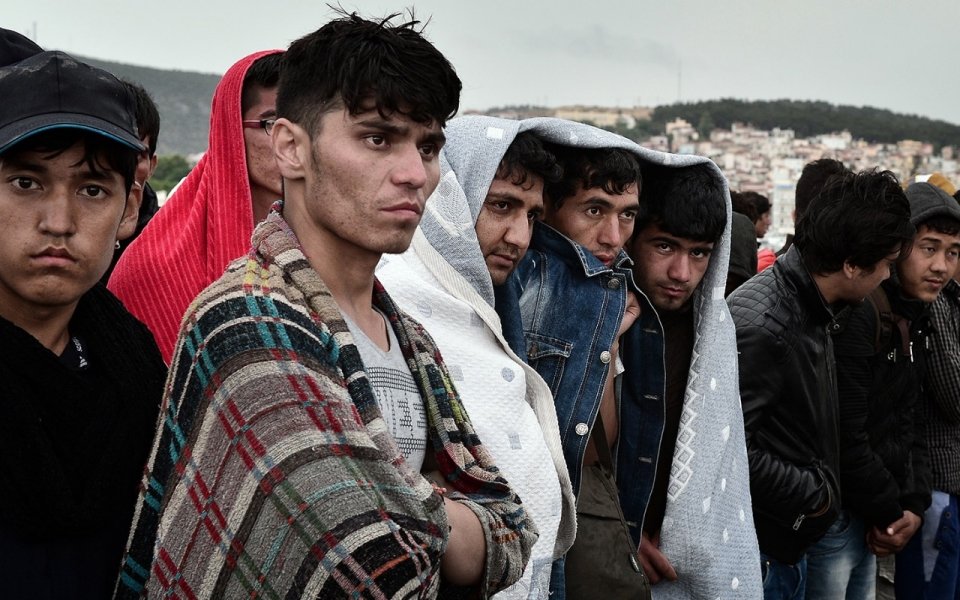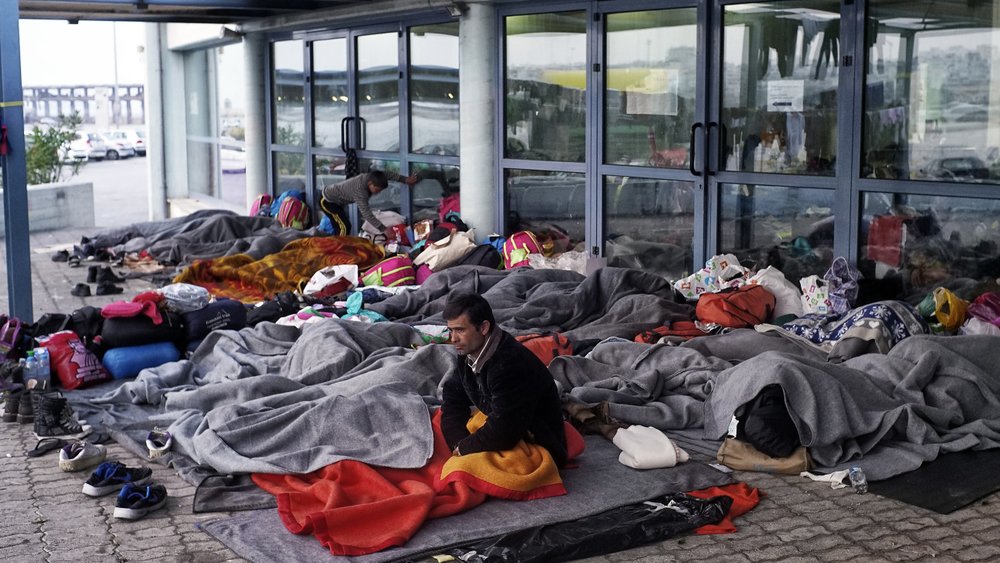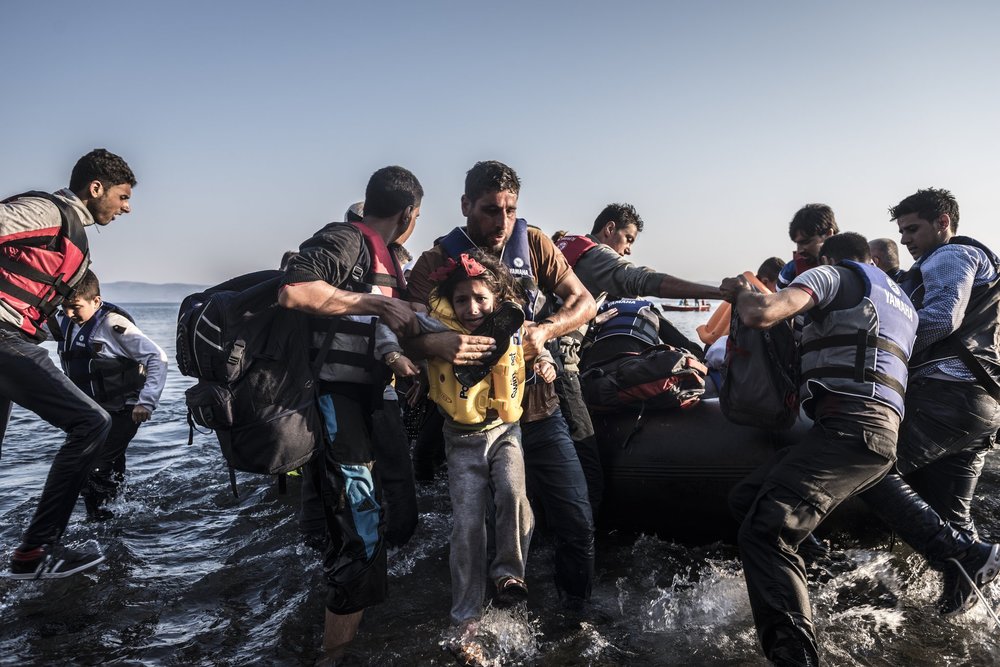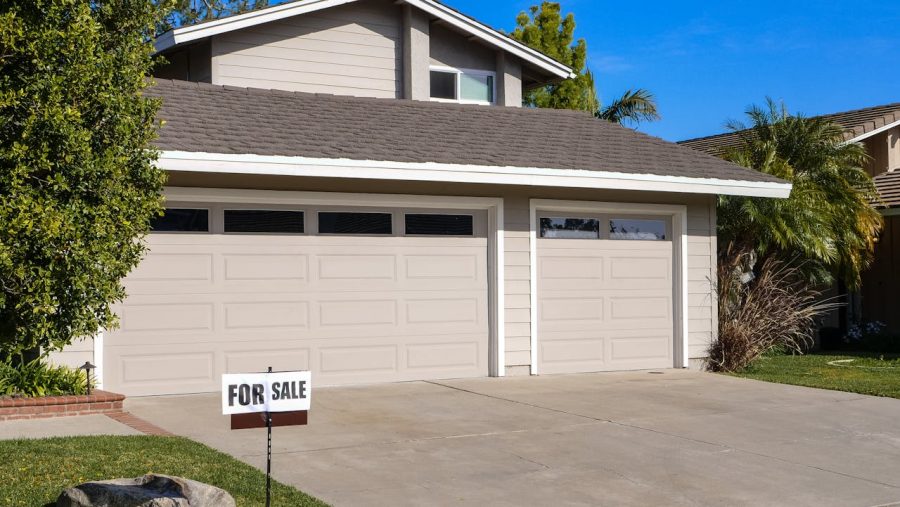Over the past few years, thousands of migrants around the world have fled from their conflict-ridden countries in hope of finding better life in the civilized Europe. While many perished at sea, the few who did manage to get ashore, were faced with a new ordeal.
It’s been more than three years since the refugee crisis in Greece caught the media’s attention and ever since, the public has been led into believing that the worst is now over for the migrants of Lesbos. But the heart-wrenching stories from refugee camps in Lesbos, paint an accurate picture of the squalid living conditions that the migrants are forced to live in.

Immigrants at one of the refugee camps in Lesbos earlier this year
Resources Meant for 2000 Migrants Being Used by 7000
In a tiny island in Greece, a new humanitarian crisis is looming on the horizon. The refugee camps in Lesbos are overcrowded due to a surge in the arrival of the migrants. The mayor of Lesbos is outraged by the poor camp conditions which are starting to bear resemblance with a prison camp – or maybe even worse.
The mayor says that he is opposed to the idea of congesting his island with more refugees than it can handle and to deny them of a basic human dignity. The refugees have been stranded on the island for months – some even for years – but the Greek government has failed to provide them with a permanent home, as promised.
The main camp of Moria, which was originally designed to hold 2000 refugees, is now overcrowded with almost 7000 asylum-seekers who await humanitarian efforts to come to the rescue.

The main, overcrowded camp of Moria
No Access to Clean Water or Toilets
The migrants in one of the camps, submerged in garbage, said that they had no access to clean water or toilets. Anas Bakour, one of the Syrian refugees who traveled long and far in search of a better life, was disheartened to discover the condition of his new home.
Bakour, who has been sharing his worn-out tent with two other men, says that no humans deserve to be treated in the way they were being treated on the island. There are many more refugees stuck on other islands around Greece who have snuck into the country through the Aegean Sea but haven’t received the help that they were promised from the government.
The U.N. refugee agency revealed that more than 15,000 refugees, mostly from Syria, Iraq and Afghanistan, have crossed the Turkish border in the last four months despite Greece’s efforts to deport them.

Migrants pulling out a boat crowded with Immigrants from Syria onto the shore of Lesbos.
Reports of gang attacks have also emerged after the residents reported that the women aren’t safe at the camp because of the armed gangs that roam around at night. Stranded refugees, including pregnant women, children and elders, must wait now for the asylum process to complete which could take months.
Some of them are already having second thoughts about their decision and saying that in a country where human rights were given the highest precedence, they had hoped for better conditions that which they had fled – instead, their new life was worse.
Who’s to Blame for a Sudden Surge in Refugees?
Humanitarian communities and aid groups say that the Greek government has turned a blind eye on the refugee crisis and are intentionally letting the islands deteriorate in order to dissuade any more migrants from entering. Greek’s immigration minster has expressed concern over the rising number of asylum seekers on the island who will be camping outside in the cold winter.
18 organizations wrote to the Prime Minister, warning him that if the conditions of the refugee camps weren’t improved, more lives especially those of children and elderly, will be put at risk. Aid groups have also requested for more medical care to help the depressed migrants who have given up hope for a better life and are attempting suicide.
Greece’s deputy migration minister , during an interview with Guardian, said that Turkey was to blame for the surge in migrants on Lesbos. The country’s turbulent relationship with the E.U. is reflected through its poor border control and whenever Erdoğan wants to put pressure on the European Union, he opens the borders and lets people flee to the nearby Greek islands.
Innocent migrants are being used in a nasty game of politics, but Lesbos cannot put too much blame on Turkey since, so far, it has denied any chance to strain the relationship between two countries.










